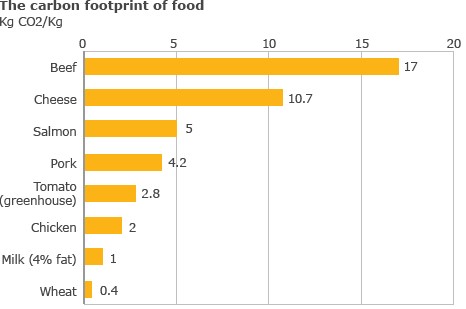For all of you that have been dying to try a meatball, or a hamburger, or a steak but were concerned for the cow, or the environmental effect of our beef industry, there may be a solution. It’s a real-meat meatball where not a single cow was killed during production.

Gif courtesy of tumblr.com
Stay with me now. Scientists at the Memphis Meat Company have created this meatball using cells harvested from the embryonic cells of calves, which they nourished with various nutrients and were able to harvest after 21 days. They then brought in a professional chef to cook the final product and a taste tester to evaluate the results.
According to the taste tester, the meatball’s taste, texture and aroma is comparable to a conventional meatball.

Photo courtesy of dailymail.co.uk
In this article from Daily Mail, the founder of Memphis Meats, Uma Valeti, says he wants “‘to do to the meat industry what the car did to the horse and buggy.’” He says the agriculture industry knows their processes are not sustainable and claims that cultured meat is the “‘future of meat.’”
This meatless meat has the ability to revolutionize our agriculture industry. The extensive environmental damage, animal rights issues, and the use of hormones, steroids and antibiotics are just a few controversies that plague today’s meat producing industry. We have all seen Food, Inc.

Photo courtesy of lantmannenfoods.com
The meatball out of the Memphis Meats kitchen was produced with “90% less greenhouse gas emissions” than the traditional process and the issue of animal cruelty can be wiped completely off the table. Their technique does not require any hormones, steroids or antibiotics either.
Although no cow is slaughtered to create this meatball, the embryonic cells are harvested from the bovine serum of unborn calves to start the process. The company is looking to manufacture a plant source of these cells in the future.
Memphis Meats wants to see their product on shelves “in the next three or four years.” This meat of the future has a lot to offer, but it will definitely take some time to get acclimated into our society. What do you think — would you try one?


